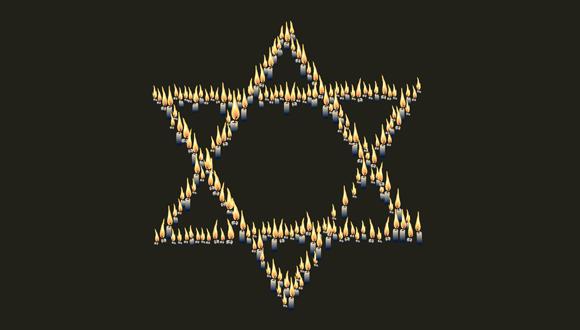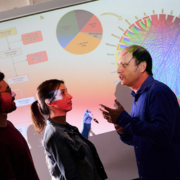TAU historian: researching the Holocaust more important than ever
Prof. Havi Dreifuss talks about the challenges historians face and the objectives of her free, online course about the Holocaust.
The United Nations has designated January 27th as International Holocaust Memorial Day. Although Israel's Yom HaShoah (officially: Holocaust and Heroism Remembrance Day) usually occurs in May, depending on the Jewish calendar, many countries center their commemorative activities on January 27th.
Tel Aviv University has always been committed to further humanity's understanding of the Holocaust and anti-Semitism as a phenomenon. As part of these efforts TAU has recently begun offering a free online course on the subject, led by Prof. Havi Dreifuss of the Department of Jewish History at the Lester and Sally Entin Faculty of the Humanities, in cooperation with Yad Vashem.
Academics face an even greater responsibility
Much has been said of the increasingly difficult task of keeping the Holocaust in humanity's collective memory, as the last generation of survivors grows smaller. Prof. Dreifuss, however, believes we should adopt a different perspective.
"I think the farther away we get from the Holocaust the more our interest in it – both in academia and among the public – grows," she said. "There is no doubt that the death of Holocaust survivors will pose a challenge to commemoration and research, but we should also keep in mind how privileged we've already been in terms of their testimony and presence. The Nazis worked hard to prevent any survivors from being able to tell us their stories but ultimately failed."
She also believes the passing of survivors places further emphasis on academic efforts. "The responsibility is now on us historians, as well as researchers from other fields, to continue and reveal the many aspects of these events that have not yet been examined," she said.
Some of this complexity can be seen in the controvery over the recent Hungarian film "Son of Saul", which depicts the life of a prisoner at Auschwitz centration camp. The film has won numerous accolades internationally and has been nominated for an Academy Award - a testament to the existing public interest in the topic. However, in its native Hungary the film has also been criticized and dismissed for being "only for Jews".
Prof. Dreifuss believes it is her job as a historian to expose "the daily life of millions – Jews and non-Jews alike – who lived during that period" even though the topic may not be popular. "Some of those who talk about the Holocaust being "overrated" actually seek to question it as a historical event and to attack any discussion of a Jewish tragedy and the factors that led to it," she explained. "But the Holocaust is part of our common past, as human beings, whether we like it or not."
A watershed event in human history
Regarding the new course, Prof. Dreifuss says it has two main objectives. "First, we'd like to try and widen students' understanding of the Holocaust – the factors that led to it, the way it unfolded, the aftermath. Second, we'd like to also give them a peek at a historian's work desk, to show some of the sources that led to our understanding of the Holocaust and how they shaped our collective memory of the past."
In her view, the course has something to offer for both people who are unfamiliar with the history of the Holocaust, and those who already know the common narrative. "The Holocaust was a watershed event in human history," she said. "A lot of the things we take for granted today – international law, expected moral standards and even art and culture – were greatly affected and even shaped by it. Anyone who seeks to understand the modern Western world would do well to educate themselves about that period. At the same time, this course doesn't just give a review of the history a lot of people already know, but also covers contemporary, innovative approaches to studying the topic, and to the study of history in general."
When asked what about the Holocaust remains the biggest academic challenge for her, Prof. Dreifuss replied: "I'll consider myself lucky if I'm able to thoroughly research even a few aspects of Jewish life during the Holocaust."






